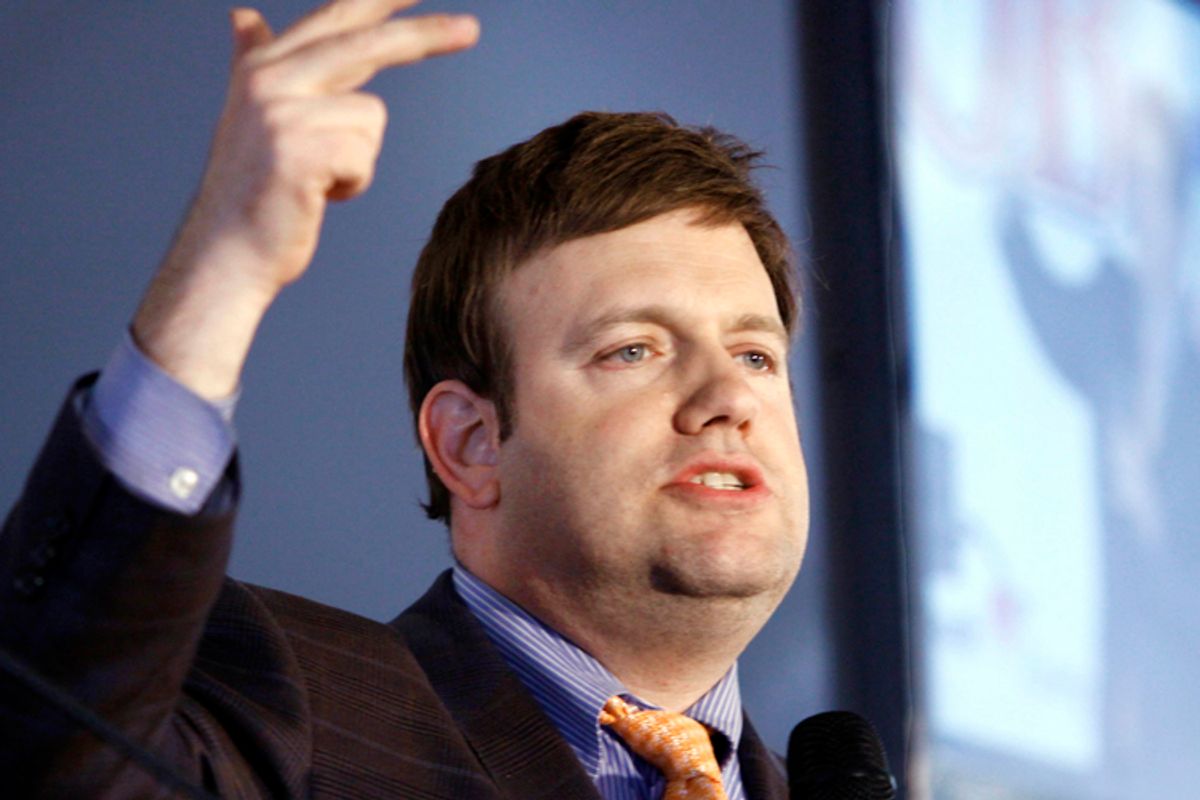The New York Times, The Los Angeles Times, MSNBC, CBS and VICE News/HBO have all allowed Republican pollster Frank Luntz to promote himself and his messaging to mainstream and liberal audiences while padding his own pockets. "If I want to pitch a CEO, I will make sure that I do [Megyn Kelly's show] the night before," Luntz said in 2015. "Because CEOs watch her show. The other show they watch is 'CBS This Morning' because they all like Charlie Rose. I actually time my television to correspond with my schedule."
In an appearance on MSNBC's "Morning Joe" this past week, Luntz and New York Times opinion page editor Patrick Healy and defended the Times' coverage of a George Floyd-themed Luntz focus group. Luntz praised Healy while offering to host another focus group for the Times and MSNBC. It's unclear whether the Times paid Luntz, although Healy's comments suggest it did not, with Healy saying he had "decided to sit in on a focus group led by Frank Luntz."
As Salon reported last week, in the six weeks leading up to the 2020 election, Luntz wrote an op-ed for the Los Angeles Times and then hosted a series of four focus groups that the newspaper live-streamed — but evidently did not pay for — following the presidential debates and town hall between Donald Trump and Joe Biden and the vice-presidential debate between Mike Pence and Kamala Harris.
L.A. Times opinion page editor Sewell Chan tweeted in 2020 that no money came from the paper for the focus groups, but they clearly didn't come without high costs. Luntz, pays participants $100 per focus group and recruited 58 participants for those four events — a starting point of $5,800 in out-of-pocket expenses. He also advertised on Facebook for at least two of the events, spending at least $1,600 on those ads. Luntz also had to screen potential participants, prepare for and run the focus groups and staff the events. (his social media director, Hetal Bhatt, is occasionally visible in the frame during several of the live-streamed event.) This raises the question: Who ultimately paid for these sessions?
The timing of payments from House Minority Leader Kevin McCarthy's leadership PAC to Luntz's firm suggests one possible answer. Two days before Luntz's op-ed was published in the L.A. Times, and a week before the first focus group, Luntz's firm, FIL, Inc., received $16,850 from McCarthy's PAC. A few weeks after the final post-debate focus group, McCarthy's PAC made another payment to Luntz for $21,500 — and a few weeks after that, McCarthy was living with Luntz in the latter's penthouse condo in Washington. As the Washington Post reported in May, McCarthy's leadership PAC was Luntz's only federal client during the 2020 election cycle.
According to a recent Wall Street Journal article, which prominently featured Luntz, "Focus groups require travel and hiring moderators, renting facilities and paying people to be in the focus groups. The cost runs about $5,000 to $9,000 per group." Four focus groups at $9,000 a piece comes $36,000, a sum within striking distance of the $38,350 McCarthy's leadership PAC paid Luntz's company around the time of the L.A. Times focus groups.
Those four focus groups have also been featured on the Los Angeles Times' YouTube channel, where they have been viewed more than 3 million times in total. The average cost of reaching 100,000 viewers on YouTube is around $2,000, so if Luntz had paid for ads to reach 3 million viewers, that would have cost roughly $60,000. One way to look at this situation is to propose that the L.A. Times gave Luntz the equivalent of $60,000 in free promotion. In the example discussed in the second paragraph above, a New York Times editor reports he simply "sat in" on a Luntz focus group. It would be interesting to know who Luntz's actual client was, or if this was merely a self-promotion tactic that earned him more free media. No clear answer to that question is available at this time.
Luntz has been censured twice by polling organizations and on numerous occasions over the last two decades, media outlets have aired Luntz focus groups, op-eds or political analysis without disclosing his concurrent work for a candidate or political party under discussion. This happened on MSNBC in 2000 and 2004, on CBS and in the New York Times in 2014, on Vice News/HBO in 2018 and most recently in the Los Angeles Times last fall.

Shares